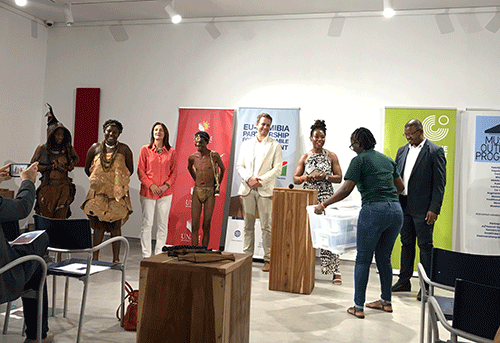In the wake of the closure of the Museum Outreach Programme last week, the University of Namibia will launch a Diploma in Museology and Heritage Studies for the 2026 academic year.
“This diploma serves as a testament to our commitment to the responsible stewardship of our collective past, ensuring that future generations inherit a legacy that is both rich and well-cared for,” said Alfons Mosimane, the executive dean in the Faculty of Education and Human Sciences.
He noted that the programme is not only focused on theoretical knowledge, but is designed to equip students with practical skills essential for navigating the complex field of heritage preservation.
“We are not merely preparing a workforce; we are building a foundation for sustainable management and appreciation of our cultural heritages,” Mosimane emphasised.
He said the programme’s distinctive feature is its commitment to practical, hands-on learning, representing a shift towards experiential education.
As a nation with a rich and diverse history, Namibia has witnessed the return of objects taken away during the colonial era, Mosimane said, adding that this innovative approach aims to cultivate a skilled workforce capable of receiving, managing and utilising cultural possessions and objects being repatriated to Namibia.
Reflecting on the Museum Outreach Programme (MOP)’s closure, he remarked: “The journey has been challenging, and some participating museums did not continue to participate in all the activities of the project during the implementation”.
Despite the challenges, he affirmed that the MOP has left an indelible mark on the landscape of heritage conservation and management at the University of Namibia.
Unam vice chancellor Kenneth Matengu said in a speech delivered on his behalf by Professor Frednard Gideon that the MOP has been instrumental in shaping students into well-rounded individuals.
He said through hands-on experiences and field engagements, the graduates have not only gained academic knowledge, but have developed lasting networks with marginalised communities.
“The MOP was not a mere project, it was a testament to the power of international collaboration, supported generously by the European Union. This endeavour exemplifies what can be achieved when institutions join hands with a shared vision,” said Matengu.
He continued that the reshaping of the Namibian museum landscape is not just a goal, but is a commitment to developing new museology methodologies which respond to the post-colonial need of heritage practice.
– priscillamukokobi@gmail.com
Caption:


